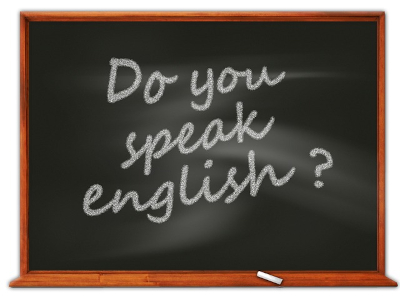
English is a very widespread language, you probably speak it – otherwise, you couldn’t read this article. When travelling, especially in Europe, English is the language everyone can communicate in if they are not familiar with the language of the visited country. Knowing the basics of English gives you the ability to communicate with everyone almost everywhere on the planet. In the following article, I will tell you 5 interesting facts about most of our second language!
- English originates from North West Germany and the Netherlands
In the 5th to the 7th century, Germanic invaders brought the Anglo-Frisian dialect to Britain. The dialect originates from what are northwest Germany, Denmark and the Netherlands today. - 11% of the entire English language is just the letter E
E appears in the most used word “the”, the most used noun “time” and the verb “be”. It’s also found in pronouns like he, she, me, or we and in all the words ending in –ed or –es. Alone in the sentence above, E makes up 21,4% of the included letters. - There are six ways to spell the sound ‘ee’ in English
The following sentence contains all of them: “He believed Caesar could see people seizing the seas”. The long ‘e’ sound is spelt with just one ‘e’ mostly in words with more than one syllable. Some examples are ‘evening’, ‘become’ or ‘decide’. In words spelt with ‘ee’, the sound normally appears in the middle and sometimes at the end of the word. Examples are ‘peel’ or ‘agree’. The third version is ‘EA’ words. You might recognize it from ‘peach’, ‘year’ or ‘season’. It’s also an option to have an ‘e’ in the middle and one at the end of a word, as in ‘here’ or ‘concrete’. The second to last way to spell the long ‘e’ sound is ‘IE’. The rule “I before e except after c” also applies to those words, like ‘fierce’ or ‘relieved’. The last spelling is the exception from the previously mentioned rule “I before E”, which means ‘EI’ after a c. Some examples are ‘ceiling’ or ‘receipt’. - The following sentence contains all 26 letters of the alphabet: “The quick brown fox jumps over the lazy dog”
This sentence is often used to test typewriters, keyboards or fonts because it displays every single letter. The sentence first appeared in The Boston Journal on February 9th 1885 and was mentioned as a good writing practice for students. The first message sent on the Moscow-Washington hotline on August 30th 1963 was “The quick brown fox jumps over the lazy dog’s back 1234567890”. - There are approximately 1,5 billion English speakers in the world
That is around 20% of the world’s population. Of those 1,5 billion people, 600-700 million people are not native speakers. English is only the third most common first language, following Chinese and Spanish. Nevertheless, it’s the official language of 67 countries in total.
I hope you learned something in this article that you didn’t know or think about before and can use these fun facts to impress your friends!
Sources:
https://www.fluentu.com/blog/english/interesting-facts-about-english/
https://www.englishclub.com/interesting-facts/
https://blog.lingoda.com/en/fun-facts-english-language/
https://www.languagecoursesuk.co.uk/english-language-facts/
https://www.nwse.com/blog/brief-history-of-the-english-language/
https://www.rd.com/article/common-letters-english-language/#:~:text=E%20is%20everywhere.,runner%2Dup%20letter%2C%20A.
https://www.spellzone.com/blog/the_seven_ways_of_spelling_the_long_e_sound.htm
https://en.wikipedia.org/wiki/The_quick_brown_fox_jumps_over_the_lazy_dog
https://www.babbel.com/en/magazine/how-many-people-speak-english-and-where-is-it-spoken
